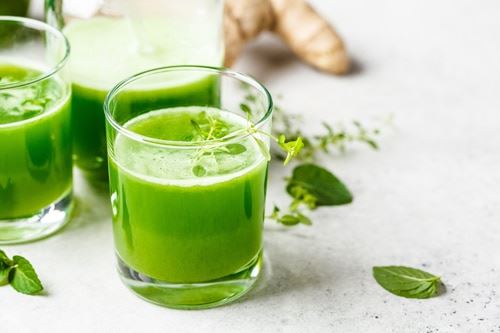Detoxification is one of the most vital parts of the addiction treatment process. Every single case of recovery starts with the detox process. Detox allows a person to get rid of the toxic substances in his or her body before focusing on more specialized treatment. It is crucial to successful treatment to know how to detox from alcohol.
Detox can be painful and stressful at times. This is because a person will experience the withdrawal symptoms that come with quitting substance use. These withdrawal symptoms can sometimes be brutal and unpredictable. This is why it’s best to get help from qualified professionals so that you know how to detox from alcohol and other substances.
A person may be wondering how to detox from alcohol at home, but the truth is, you shouldn’t attempt it. Some alcohol-related withdrawal symptoms can be life-threatening when detoxing alone. It’s best to have the support and guidance of professionals to ensure safety and effective treatment.
There are many questions a person may have about detox such as how long does it take for your body to detox from alcohol or what’s the best way to detox from alcohol? We’ll be answering some of these questions and other things to keep in mind when detoxing from alcohol.
What is Alcohol Detox?

Alcohol detox is the process of quitting alcohol use deliberately and becoming sober with the help of medical professionals. During this period, a person will experience the withdrawal symptoms that come with quitting alcohol abruptly. Learning how to detox from alcohol can be stressful and intense. Detox is a process that helps relieve some of these symptoms while a person slowly stops their alcohol intake.
Since alcohol withdrawal can be intense and unpredictable, alcohol detox is best done with medical supervision. While detox can be an uncomfortable and scary experience at times, it is necessary to recover from alcohol addiction. Natural alcohol detox also sets a person up for the rest of their treatment.
What are the Symptoms of Alcohol Withdrawal?
As with all cases of alcoholism and addiction, each person’s case is different. A person may experience completely different symptoms than others. Some of the most common withdrawals include:
- Insomnia
- Anxiety
- Headache
- Irritability
- Sweating
- Shaking/tremors
- Heart palpitations
- Nausea
- Vomiting
- Increased blood pressure
- Fatigue
- Depression
- Trembling hands
- Clammy skin
What Are Delirium Tremens?
Delirium tremens (or DTs for short) is a severe type of alcohol withdrawal symptom. A person can experience DTs a few days or a week after his or her last drink. DTs can be life-threatening in some cases, which is why medical supervision is strongly recommended for any kind of detox. DTs can occur in cases where a person is malnourished.
If you noticed any of the following symptoms in you or a loved one, get emergency medical attention immediately:
- Fever
- Hallucinations
- Confusion
- Irregular heartbeat or arrhythmia
- Seizures
- Tremors
- Intense sweating
- Agitation/irritability
- Rapid mood swings
- Drastic and dangerous changes in blood pressure
The symptoms of DTs can rapidly intensify and become fatal quickly. A person suffering from DTs should remain hospitalized until their symptoms are stabilized/controlled.
How Long Do Alcohol Withdrawals Last?
To reiterate, everyone will experience these withdrawal symptoms differently. There is no one set period of time or set of symptoms. With this in mind, withdrawal symptoms typically begin within a few hours to a day after a person’s last drink. Afterward, a person will experience the worst of the symptoms within the 24 to 72-hour mark.
Certain symptoms may last much longer. Symptoms that affect a person’s sleep, mood, and fatigue can last for weeks or even months. These symptoms typically subside after a week or so after drinking (sometimes before then). While it may be discomforting and painful at times, it’s important to stay under medical supervision and to stay positive. At the end of the day, it’s worth it for a better life, free of drugs.
How Long Does It Take to Detox from Alcohol?
So how long does alcohol detox take? The entire alcohol detox process takes about a week or so, sometimes more. During this time, a person will be under medical care to ensure safety. As mentioned, a person’s symptoms worsen in the 72-hour range. After the first week, a person’s symptoms will begin to decrease. Shortly after this, a person begins working with therapists to develop the skills and thoughts necessary for recovery.
With the proper care during the process, a person can successfully detox and be back to recovery within a week. Overcoming an addiction is not easy but with the right level of treatment, it is possible and achievable. At Graceland Recovery, we offer all the necessary tools to overcome addiction.
Is Medication Provided During the Detox Process?
In some cases, medication is used to help alleviate some of the withdrawal effects during the process. Medication is used carefully to ease the process and not so much replace the drug use.
It may not be required in some cases and is ultimately used to help during the detox process. Medication may also be used in the therapy process after detox has finished. Consult with a medical professional about medication during the detox process.
Some of the most common medications used during detox include:
- Naltrexone
- Disulfiram
- Anticonvulsant medications
- Benzodiazepines (FDA-approved)
These are just a few of the medications that are used during the detox process.
What Comes After Detox?

After detox comes more personalized and specific treatment. Detox is just the first step in addiction treatment. It’s a process that allows you to stabilize and physically get off of alcohol use. Several different paths can be taken after detox has finished. What comes next depends on the severity of a person’s addiction as well as other factors. Certain treatment options are more flexible and relaxed, while others are more intense.
However, whichever treatment method a person goes into, therapy is always part of the process. Therapy can be used during and after the detox process. Medication is also something that’s utilized throughout the detox process (in most cases). Let’s take a look at the next steps after detox.
Inpatient/Residential Treatment
One of the most widely used treatment methods is inpatient treatment (also known as residential). Once you learn how to detox from alcohol, it’s important to continue in a supportive environment. This method of treatment has the person staying in a rehab center for a period of time. Once the recovery process begins, it’s important to be in a supportive and safe environment.
After detox has ended, people typically enter an inpatient program. Here, a person will have a set schedule each day. A person will meet with professional therapists in the process. With 24/7 support and a safe environment, inpatient treatment offers the best level of treatment.
Outpatient Treatment
Outpatient treatment is also widely used after the detox process has ended. There are several different forms of outpatient treatment, each with the same basic idea. Outpatient treatment has a person living at home while attending therapy sessions every week. The frequency and length of these meetings depend on the outpatient program.
Outpatient treatment options allow an extra layer of flexibility during the process. Sometimes, people may have responsibilities or obligations at home, whether this is taking care of kids, going to work or school, or other obligations. Since outpatient treatment lets a person live at home during the process, it can be a great way to live your life while getting help. At Graceland Recovery Center we offer various forms of outpatient treatment with you in mind.
- Intensive Outpatient (IOP) – Intensive outpatient programs consist of 3-5 visits a week and allows a person to live at home during the process. IOP’s are effective for cases of dual diagnoses or co-occurring disorders.
- Partial Hospitalization Program (PHP) – PHP is a much more intense version of a typical outpatient program. A person will attend longer meetings with more frequency (sometimes every day of the week). This is for more severe types of addiction and requires more time and effort.
Therapy Methods

As mentioned, therapy is a vital part of the alcohol use treatment process. Therapy helps reshape how someone thinks and feels about drinking alcohol. In the process, a person understands why he or she began drinking in the first place and what’ll take to stop.
Therapy can be done in an individual setting or in a group setting. There are many different forms of therapy, each with its own style.
Common therapy options used during and after alcohol detox include:
- Cognitive-behavioral therapy (CBT)
- Experiential Therapy
- Group Therapy
- Trauma Therapy
- Dialectical behavior therapy (DBT)
- Family Therapy
Start the Journey Towards a Better Life Today!
Now that you know how to detox from alcohol with the help of professionals, it’s best to act accordingly if you need help. Addiction can completely destroy a person’s life if left untreated. Centers like Graceland Recovery are here to give you the best chance of recovery.
Don’t hesitate, get started on the journey right now. Give us a call and we’ll help you get on the path towards a better life without addiction.

